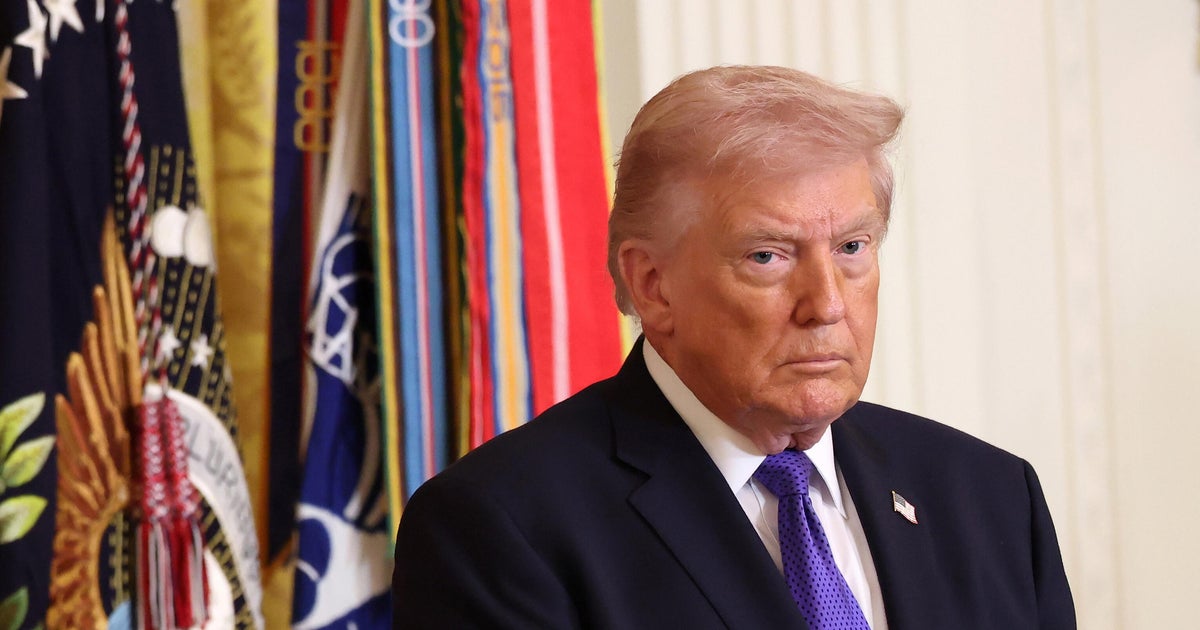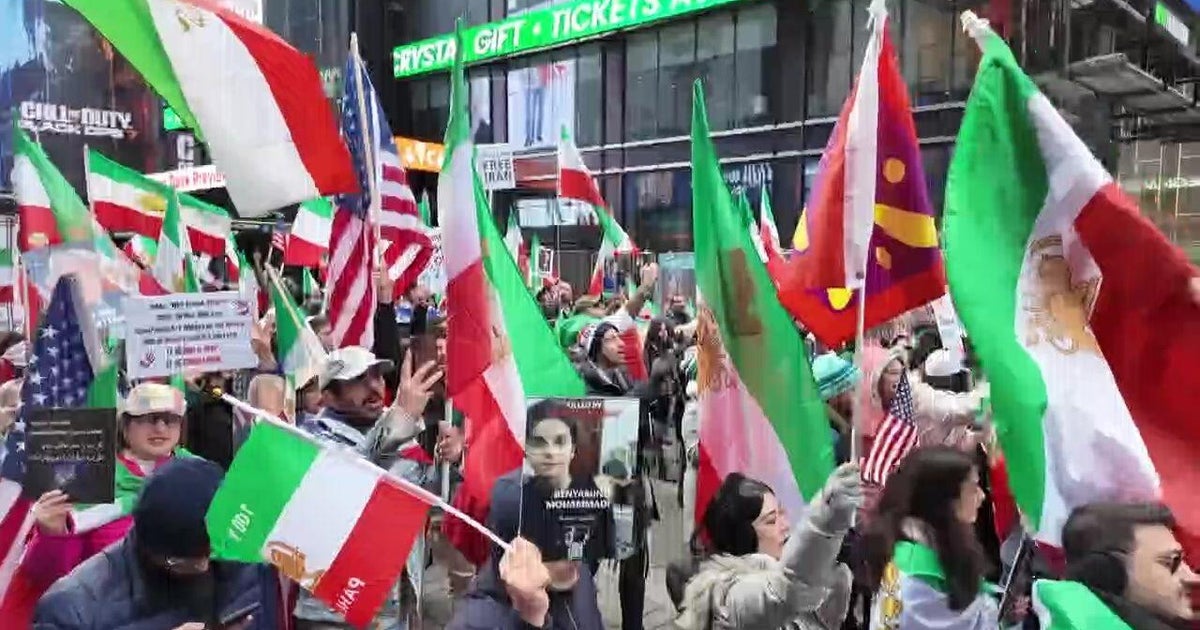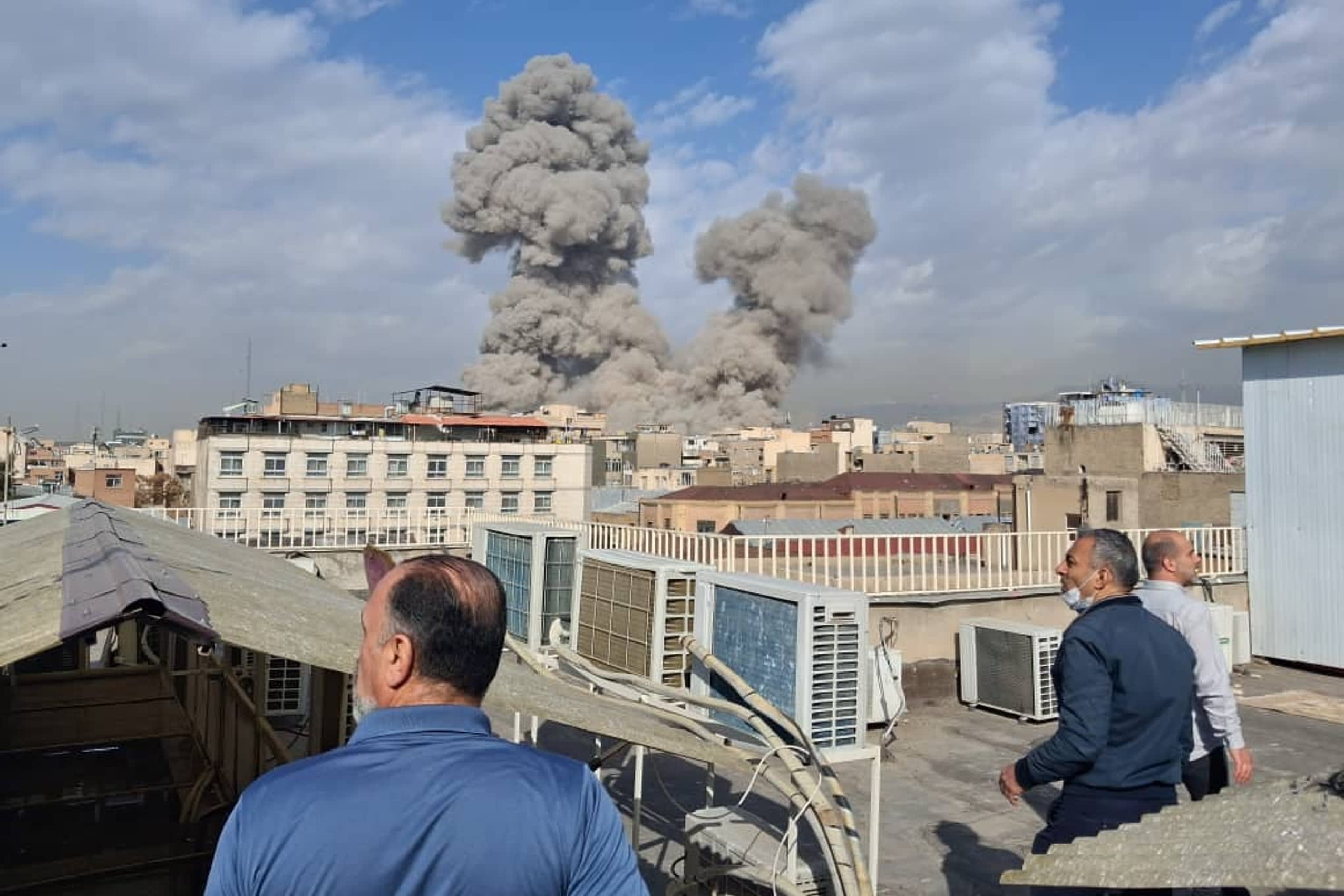U.S. designates Iran's Islamic Revolutionary Guard Corps as a terrorist organization
The United States has designated Iran's elite Islamic Revolutionary Guard Corps as a foreign terrorist organization, effective Monday, which makes it illegal for any organization to provide material support to the IRGC. The Trump administration accuses the group, formed by an order of Ayatollah Khomeini as a branch of Iran's Armed Forces founded after the 1979 Iranian revolution, of not only facilitating, but perpetrating, terrorism.
President Trump declared the designation an "unprecedented step" that "recognizes the reality that Iran is not only a State Sponsor of Terrorism, but that the IRGC actively participates in, finances, and promotes terrorism as a tool of statecraft." The designation marks the first time that the U.S. has said a part of another government is a terrorist organization, according to the White House, and will expand the scope and scale of the administration's maximum pressure campaign on the Iranian regime.
"The IRGC is the Iranian government's primary means of directing and implementing its global terrorist campaign," the president declared in a statement. The White House emphasized the action "sends a clear message to Tehran that its support for terrorism has serious consequences."
"We will continue to increase financial pressure and raise the costs on the Iranian regime for its support of terrorist activity until it abandons its malign and outlaw behavior," the president said.
Secretary of State Mike Pompeo formally made the announcement to the media at the State Department Monday morning, saying the move will "deprive the world's leading state sponsor of terror the financial means to spread misery and death."
"The IRGC masquerades as a legitimate military organization, but none of us should be fooled," Pompeo told reporters.
As one senior administration official put it on a conference call with reporters, "Today, the IRGC's era of plausible deniability is over."
Pompeo accused the IRGC of being responsible for the deaths of hundreds of American service members. He said that "the blood of the 603 American soldiers" believed to have been killed by Iranian-sponsored groups during the Iraq War is on the hands of the IRGC.
Asked about the timing of the announcement, special representative to Iran Brian Hook said it's being done now because "it's the next step" in the administration's maximum pressure campaign. The goal, according to the administration, is to make Iran's economy "radioactive" so that businesses in Europe and around the world will come to the conclusion that dealing with Iran is simply not worth the risk.
CBS News "Face the Nation" moderator Margaret Brennan reports that White House officials, including National Security Adviser John Bolton and Pompeo himself, had been arguing for the designation for some time. The Pentagon, however, had voiced concerns about the designation given the close proximity of U.S. troops in Syria to Iranian forces.
Tensions between Iran and the U.S. have escalated since the Trump administration's pullout of the Iran nuclear agreement. The administration has since imposed the harshest sanctions on Iran to date.
The ideological militia has about 125,000 members and permeates almost every aspect of Iranian society with influence in political, military, economic circles. It is also thought to manage some 20 percent of the Iranian economy. So with this designation, the Trump administration is once again going after the money, having previously sanctioned almost 1,000 entities and individuals with ties to Iran.
Critics of this designation and the America's hawkish policy toward Iran, point out that every time the US takes action action Iran, the Iranian government digs in. There are no off-ramps or face-saving measures on the table that would allow Iran's leaders to save face if they chose to reverse course-- and no indication they plan to do so any time soon.
The all-stick-and-no-carrot approach has no gone down well with Iran's Foreign Minister Javad Zarif, who called rumors of the terror designation "another U.S. disaster." He tweeted that the policy was being enacted a the behest of supporters of Israeli Prime Minister Benjamin Netanyahu.
In a tweet following the official announcement, Netanyahu thanked his "dear friend" President Trump for making the designation.
In a translated message, Netanyahu thanked the U.S. president "for responding to another important request of mine, which serves the interests of our countries and countries of the region." The Israeli leader, who is seeking a fifth term as prime minister in Tuesday's election, has repeatedly denounced the Iranian regime as seeking to destroy the Jewish state, encouraging Mr. Trump to stand with Israel in defiance of Iran's nuclear ambitions.
"We will continue to act together in any way against the Iranian regime that threatens the state of Israel, the United States and the Peace of the world," Netanyahu said.
Meanwhile, Iran's President Hassan Rouhani has alluded that it would continue to build up its military power despite strict U.S. sanctions. Asked about the Iranian response, Secretary Pompeo said Iran had better think "more than twice" before attacking the United States.
CBS News' Christina Ruffini contributed to this report.
This is a developing story.



